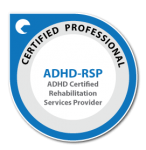

A few days ago, I was outside watering and tending to my garden (butter lettuce for the winter) when something caught my eye. The sole sunflower in the garden finally looked ready to bloom soon. I’ve been watching its slow development, but something about the look of that sunflower on that day made me want to take a picture and relate it to ADHD. I noticed the sunflower months ago – a dormant seed from my summer garden, or perhaps a dried seed that fell off a spent head during the hot summer months. It doesn’t really matter how it got there… it’s out of place in my winter garden.
This past week in my Parent + Child ADHD class we were talking about what we think our children “should” be able to do at a certain age, and how frustrating it is when they can’t or worse, won’t. I assured the families that just because somebody needs more help or support – or time – than you think is appropriate or acceptable, does not mean that it will *never* happen. The developmental lag is real. The buddies of my lone sunflower are long gone, turned to compost and getting ready to create something else really great on their journey. But my late bloomer is still growing tall and proud! It had multiple tightly closed buds, just waiting for the right amount of sun and water and time to pass to feel nurtured enough to open full and beautiful.
Many kids with ADHD have a developmental lag. Some development, typically in behavior, social skills and emotional regulation, appears to be more in line with children 2 or 3 years younger than their chronological age. Some professionals estimate that individuals with ADHD have a developmental lag of up to 30% in their executive functioning skills.
You might be thinking right now – but wait! What about the 10-year-old who has been doing mental math since age 3 but leaves jackets, water bottles and other personal items behind at school every single day? What about the 6-year-old who can discuss every type of dinosaur, the time period it lived in and its diet, but has a nightly tantrum when it’s time for a bath? What about the 16-year-old talented dancer or soccer player who cannot organize or manage their time around homework tasks?
This concept of asynchronous development is never so real as it is with kids with ADHD. Asynchronous development is when a child exhibits a strength beyond their chronological age in one area but struggles more than others in a different area. There may be a mismatch between intellectual, physical, and social-emotional development. Some are reading years ahead of their grade level, but struggle with daily routines. Some are model students, but they fall apart emotionally at home over the slightest thing. Some still want parents to nurture them closely through seemingly easy and mundane tasks. Some may struggle with perfectionism and anxiety related to the mismatch.
When we over-focus on what your child “should” be doing at their age, we are missing an opportunity to connect with and help nurture them to get there on their own timeline. I encourage you to sit down and consider the developmental age of your child in the different areas of their life. It will help you readjust your expectations, improve your child’s self-esteem, and create a developmental roadmap of ways to scaffold and support your child through their biggest challenges.
If you are now nodding you head, the concepts of developmental lag and asynchronous development may have just clicked!
I never considered removing the January sunflower when I was planting and tending the lettuce. I decided to work around it, keep watering, and see what happened. I have never had one in January before. I’ve been following my sunflower’s progress over the last few days, and it just opened. In fact, when I took a picture today, there were 3 very happy bees inside of it. The bees don’t have too much to feast on in the winter, so I was happy to note that the sunflower had a beautiful purpose in being a late bloomer.
One day, your sunflower will bloom and you will bask in every amazing little part that opens up and shows you what they are capable of. Until then, continue to nurture him or her. Don’t worry if they are a late bloomer. Their January will come.
If you would like one on one or group coaching for your child or parent coaching for yourself, please fill out my ADHD Services Questionnaire or my Parent Coaching Questionnaire.
And check out my ongoing teen group coaching – available now! I am also planning an upcoming workshop series, so please stay in touch by following us on Facebook and Instagram!




Copyright 2024 © Kids Empowered 4 Life. All rights Reserved.
All information on the Website is presented as informational only and is not a replacement for therapy assessment, diagnosis, intervention, or medical advice. The information provided on the Website is provided “as is” without any representations or warranties, express or implied. Kids Empowered 4 Life assumes no responsibility for errors or omissions that may appear in the Website.